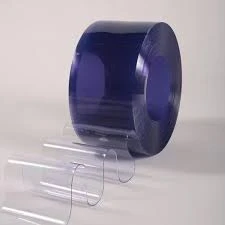- Afrikaans
- Albanian
- Amharic
- Arabic
- Armenian
- Azerbaijani
- Basque
- Belarusian
- Bengali
- Bosnian
- Bulgarian
- Catalan
- Cebuano
- Corsican
- Croatian
- Czech
- Danish
- Dutch
- English
- Esperanto
- Estonian
- Finnish
- French
- Frisian
- Galician
- Georgian
- German
- Greek
- Gujarati
- Haitian Creole
- hausa
- hawaiian
- Hebrew
- Hindi
- Miao
- Hungarian
- Icelandic
- igbo
- Indonesian
- irish
- Italian
- Japanese
- Javanese
- Kannada
- kazakh
- Khmer
- Rwandese
- Korean
- Kurdish
- Kyrgyz
- Lao
- Latin
- Latvian
- Lithuanian
- Luxembourgish
- Macedonian
- Malgashi
- Malay
- Malayalam
- Maltese
- Maori
- Marathi
- Mongolian
- Myanmar
- Nepali
- Norwegian
- Norwegian
- Occitan
- Pashto
- Persian
- Polish
- Portuguese
- Punjabi
- Romanian
- Russian
- Samoan
- Scottish Gaelic
- Serbian
- Sesotho
- Shona
- Sindhi
- Sinhala
- Slovak
- Slovenian
- Somali
- Spanish
- Sundanese
- Swahili
- Swedish
- Tagalog
- Tajik
- Tamil
- Tatar
- Telugu
- Thai
- Turkish
- Turkmen
- Ukrainian
- Urdu
- Uighur
- Uzbek
- Vietnamese
- Welsh
- Bantu
- Yiddish
- Yoruba
- Zulu
High-Quality PVC Sheets for Versatile Plastic Applications and Creative Projects
Understanding PVC Sheets Versatility and Applications
Polyvinyl Chloride, commonly known as PVC, is one of the most widely used synthetic plastic polymers in the world. Among its various forms, PVC sheets play a crucial role in diverse applications due to their versatile characteristics. This article explores the properties, manufacturing processes, and applications of PVC sheets, emphasizing their significance in various industries.
Properties of PVC Sheets
PVC sheets are known for their exceptional durability and rigidity. They possess excellent chemical resistance, making them suitable for environments where exposure to corrosive substances is expected. Additionally, PVC is lightweight, which aids in ease of handling and installation. These sheets are weather-resistant, ensuring longevity even in outdoor applications. Their surface can be easily cleaned, which is why they are favored in environments demanding high hygiene standards, such as kitchens and hospitals.
Another important characteristic of PVC sheets is their versatility in thickness, size, and color. Manufacturers can produce sheets in various dimensions, allowing for customization according to specific needs. Furthermore, PVC sheets can be easily fabricated, meaning they can be cut, drilled, and assembled without special tools. This adaptability makes them popular among contractors and DIY enthusiasts alike.
Manufacturing Process
The production of PVC sheets typically involves a combination of polymerization and extrusion processes. Initially, raw materials, including vinyl chloride monomer, are polymerized to form polyvinyl chloride resin. This resin undergoes a further mixing process with various additives, such as stabilizers, lubricants, and pigments, which enhance its properties and aesthetics.
Once the mixture is ready, it is fed into an extruder, where it is heated and shaped into sheets. This process can be finely tuned to create sheets with specific thicknesses and surface finishes. After extrusion, the sheets are cooled and cut to the desired dimensions before being packaged for distribution.
Applications of PVC Sheets
PVC sheets find their utility in multiple sectors due to their beneficial characteristics.
plastic pvc sheets

1. Construction and Building One of the most significant applications of PVC sheets is in the construction industry. They are used for wall cladding, roofing membranes, and flooring. Their resistance to moisture makes them an excellent choice for bathrooms, kitchens, and areas prone to humidity. Additionally, PVC sheets are often used in the fabrication of windows and doors, providing an energy-efficient and low-maintenance solution.
2. Signage Given their vibrant colors and excellent printability, PVC sheets are a popular choice for signage. They are lightweight yet sturdy, making them ideal for both indoor and outdoor advertisements. Companies often use PVC sheets for promotional displays, retail signage, and event banners due to their eye-catching appearance.
3. Packaging In the packaging industry, PVC sheets are widely used to create rigid containers, blister packs, and packaging films. Their ability to seal tightly around products ensures protection during storage and transportation.
4. Automotive Industry PVC sheets are also employed in the automotive sector for interior paneling, dashboard components, and weather stripping. Their durability against chemical spills and exposure to sunlight makes them a practical choice for various automotive parts.
5. Medical Equipment The healthcare industry benefits from PVC sheets due to their hygiene properties. They are used in the manufacturing of medical devices, barriers, and sterilization covers. Their ability to be easily sterilized makes them essential in ensuring patient safety.
Environmental Considerations
While PVC sheets offer numerous advantages, it is essential to address concerns regarding their environmental impact. The production and disposal of PVC can lead to pollution and harmful emissions. Therefore, it is crucial for manufacturers to adopt responsible practices, such as recycling and proper waste management, to mitigate these effects.
Conclusion
In summary, PVC sheets are a remarkable example of a versatile material that has wide-ranging applications across various industries. Their durability, customization options, and excellent performance characteristics make them indispensable in construction, signage, packaging, automotive, and medical sectors. As awareness of environmental issues grows, future developments in sustainable production techniques will further enhance the role of PVC sheets in our daily lives while minimizing their ecological footprint.
-
PVC Vinyl Strip Curtains Durable, Clear Door Insulation SolutionsNewsMay.14,2025
-
Affordable Plastic & PVC Curtain Prices Durable & TransparentNewsMay.14,2025
-
PVC Strip Curtains for Food Industry Hygienic & Durable SolutionsNewsMay.14,2025
-
Plastic Door Curtain Manufacturers Magnetic & Welding SolutionsNewsMay.13,2025
-
PVC Strip Curtain Prices Durable & Cost-Effective SolutionsNewsMay.13,2025
-
Commercial Plastic Door Flaps & Thresholds Durable & Cost-EffectiveNewsMay.13,2025



